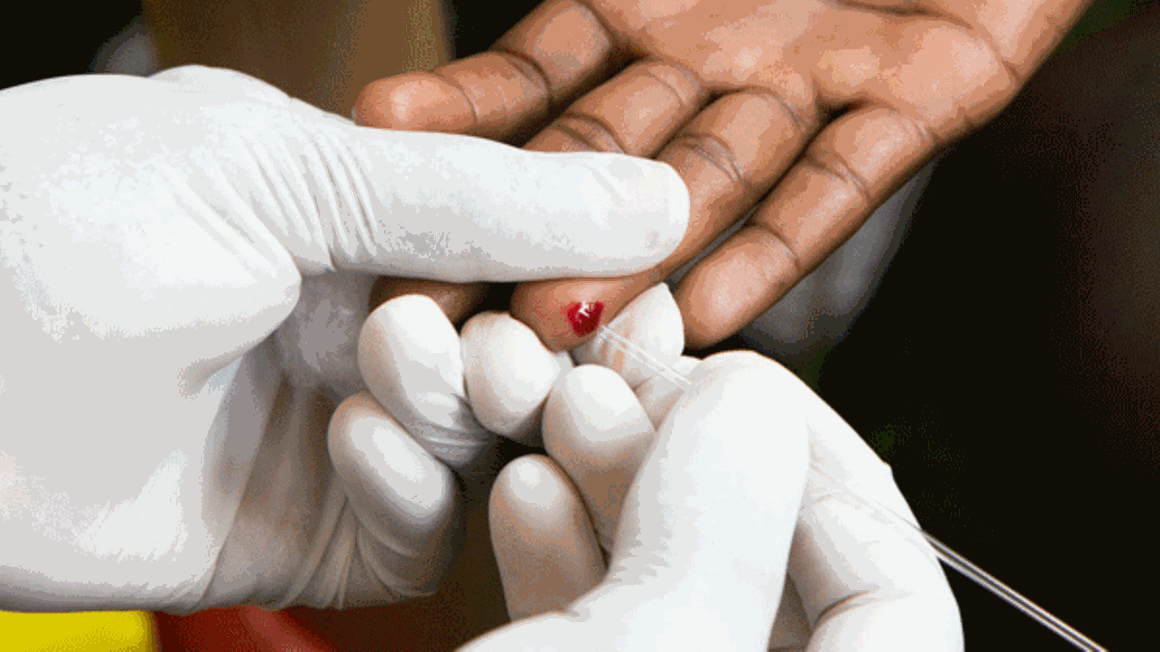AIDS body seeks Shs29 trillion to avert 130,000 new infections

A doctor takes a blood sample from a patient. Uganda seeks $8.2 billion (about Shs28.9 trillion) to avert 130,000 new HIV/Aids infections and 51,000 Aids-related deaths in the next ten years. PHOTO/FILE
Uganda seeks $8.2b (about Shs29 trillion) to avert 130,000 new HIV/Aids infections and 51,000 Aids-related deaths in the next ten years.
Dr Nelson Musoba, the director general of Uganda Aids Commission (UAC), told MPs during an induction meeting in Kampala on Friday that the country’s HIV/Aids prevalence now stands at 6.2 per cent but with higher incidence in women at 7.2 per cent and 4.7 per cent in men.
Statistics from the commission indicate that infection rates fell from 53,000 to 38,000 in 2020, while Aids-related deaths have fallen from 53,000 to 22,000 over the past decade.
Dr Musoba said the country targets zero infections and ending HIV/Aids as a public health threat by 2030. But he said the gains made and the targets set could be undermined by limited funding.
He said the cash shortfall has undercut interventions and enforcement of policies and setting up regional centres to fight against HIV/Aids.
Dr Musoba told Sunday Monitor that more than 80 per cent of the funding against HIV/Aids comes from donors.
“The total amount of money it takes to fund the HIV/Aids activities is equivalent to the entire Health sector budget which is about Shs1.5 trillion annually, we use almost the same amount of money for HIV activities. It is about $600 million dollars every year…,” he said.
“Currently, close to 80 per cent of HIV/Aids funding comes from donors. The government has increasingly put in money, especially contribution towards health supplies and commodities. It puts in an equivalent of $100 million every year to purchase ARVs, lab reagents in addition to other demands. Government should strategically contribute more than it is now, if it can be 50/50 that would be better because we are aspiring to become a middle income country…,” he added.
In the Financial Year 2021/2022, the commission faces a funding gap of 72 per cent, up from 61 in the 2020/2021 financial year.
“We fell short of 2020 targets and made little progress with safe male circumcision, retention, and pre-exposure prophylaxis (PrEP) behavioural interventions,” he said. Mr Musoba expressed worry over the persistent rate of mother-to-child transmission and the high rates of infection among young women.
In 2020 alone, 5,300 babies were born with HIV/Aids, while the new infection rates are four times higher among female adolescents than in their male counterparts. The commission is aiming to avert 43,000 new infections among adolescent girls and young women.
Dr Musoba asked the MPs to fast track activation of the Aids Trust Fund, which since its establishment in 2014, has remained on paper.
Dr Stephen Watiti, the chairperson of Persons Living with HIV/Aids, urged government to shift efforts towards creating awareness around adherence to taking medication, which he said has made him live with the virus for 35 years.
Dr Watiti said stigma deters many from going to hospitals and undermines the fight against the virus.
Mr Joshua Mubangizi from Unaids said Uganda has the highest HIV burden in East Africa. He said global efforts are underway to deal with opportunistic diseases , including tuberculosis.
Ms Dorcas Acen, the Alebtong Woman MP, said: “The gender disparity in infection, especially among young girls, is increased by societal issues such as gender-based violence and called for synergies to address the problems.’’



